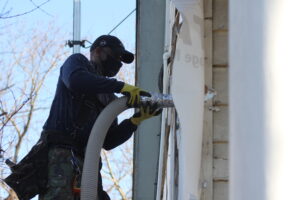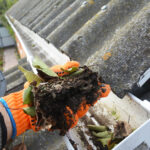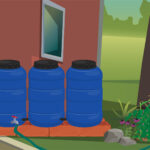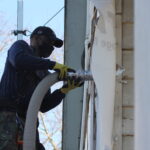Your home insulation has one job: it regulates your home’s interior temperature. Because of that regulation, the heating and cooling costs of your home are lowered.
If you didn’t have insulation, your home heating, and air conditioning bills would be astronomical. Your family’s health would also be compromised as the extremes in temperatures would make it uncomfortable and unhealthy. Your home insulation is crucial to your home being a safe and healthy place to live.
But, many homeowners ask the age-old question: How long will my home insulation last?
Most quality home insulation has a life of 20-100 years. However, though that is typical, several factors may deteriorate your home insulation, thus reducing its life by several years and even decades.
Here are several factors that can reduce the effectiveness of your home insulation:
- Type of insulation. As we have written in previous blogs, there are four types of insulation: fiberglass loose-fill, fiberglass batts, blown-in cellulose, and spray foam. All types have their advantages and disadvantages. Spray foam insulation tends to be the longest-lasting type of attic insulation. Fiberglass and cellulose insulations typically have a 25-year life span.
- Attic maintenance. No one wants to get inside the attic. It’s hot, cramped, and generally uncomfortable, so, maintaining it can be a chore. However, taking a few steps to keep it clean and pest controlled, can contribute to the lifespan of your home insulation. If you have an attic fan, make sure the fan is running, spray for pests, and see if a new layer of insulation is needed.
- Pest infestation. Attics become a natural ecosystem of a variety of birds, raccoons, squirrels, bugs, rats, and snakes. Rats will even eat your insulation. These pests get into the attic through a hole in the roof or siding. Because of these pests, your insulation may be rotting, moldy, feces-ridden, or soaked in urine. HVAC ducts may also be conduits for pests. Pests can cause major damage to your insulation and home.
- The condition of the roof. Leaks in the roof can rapidly deteriorate insulation as the water gets trapped in the roof and pools causing moisture to soak the insulation. Then summer arrives and humidity dries that same insulation so that it rots. The roof is central to keeping insulation protected from pests and the elements.
So now we are back to our original question: How long does insulation last? That all depends on your type of insulation, roof condition, and if there is a pest infestation in your attic.
You may be unsure of your attic insulation age, and most homeowners are unsure. It may be time to schedule a home energy audit and determine how to optimize your home’s performance, saving you money on your bills and increasing your comfort. Call Energy Efficiency Experts at (202) 557-9200 for a consultation.
We serve the Washington, D.C. region.





















































